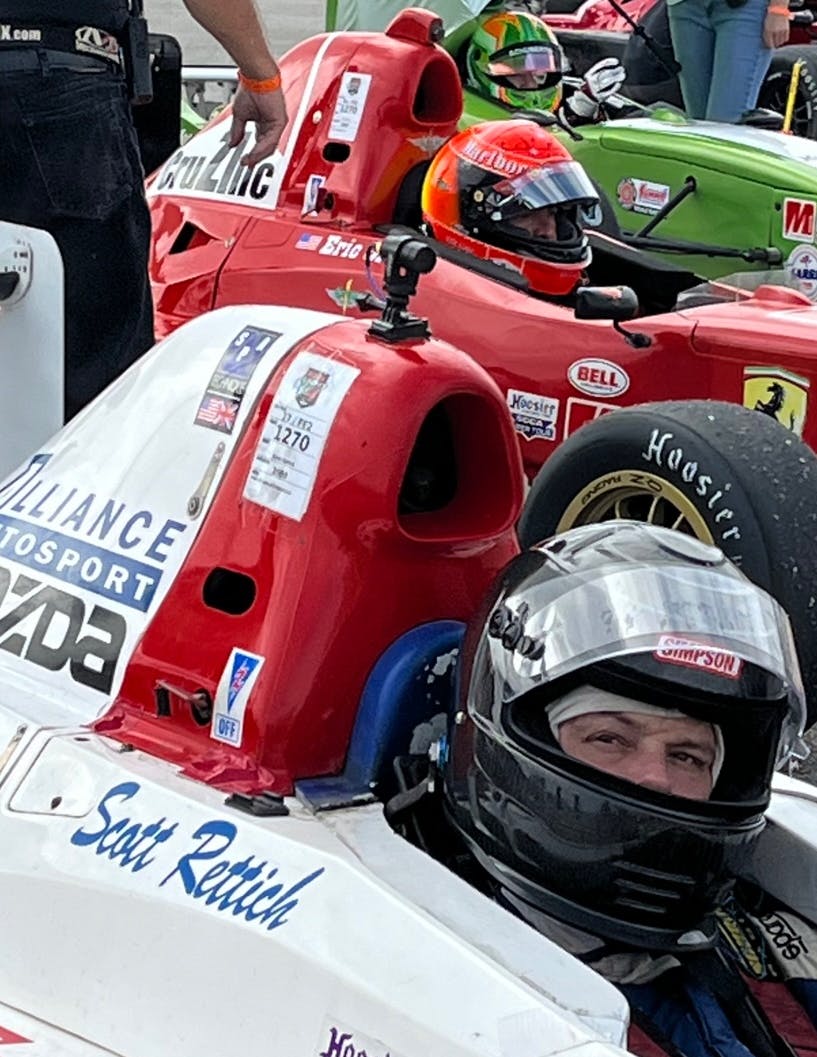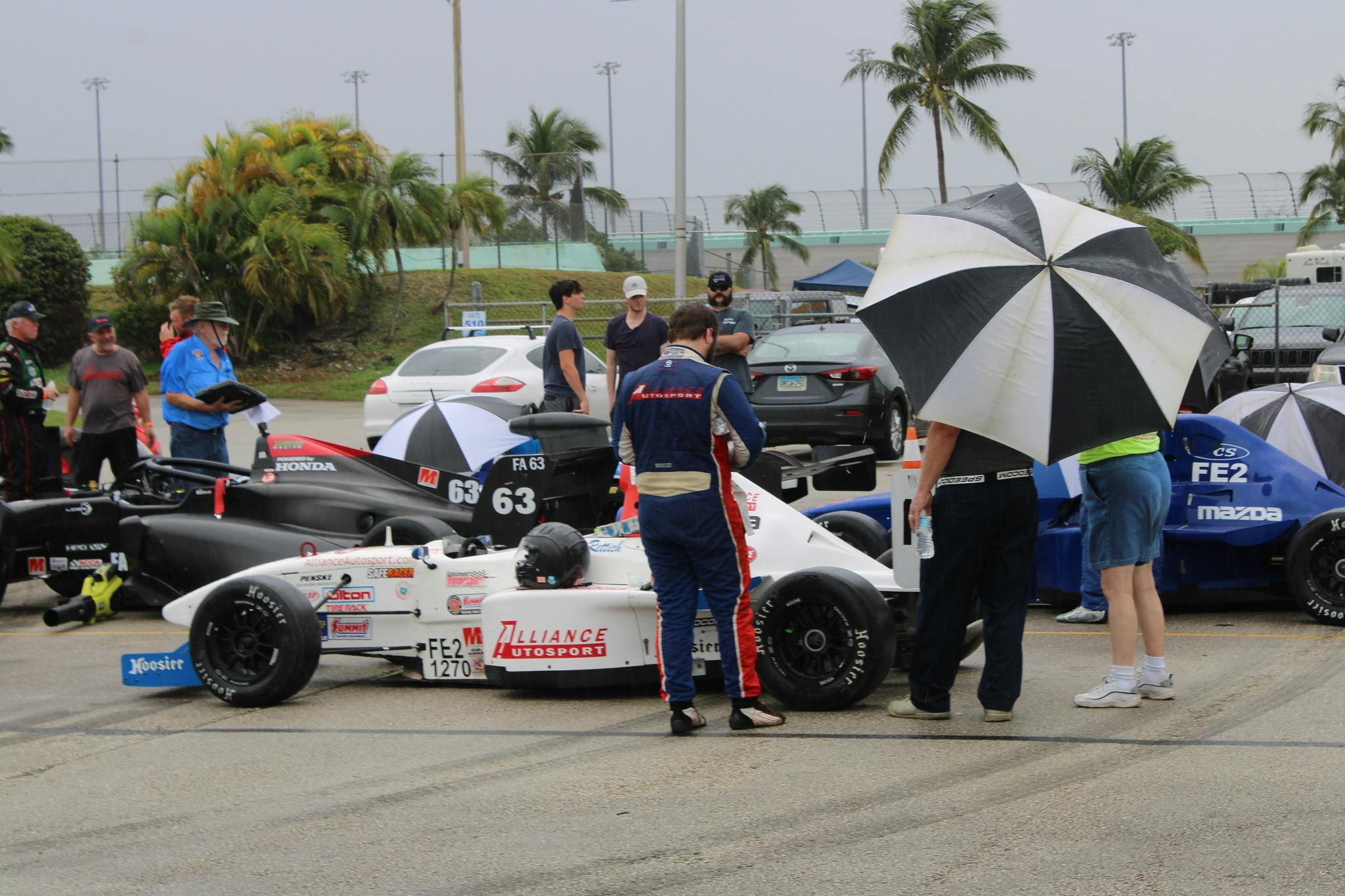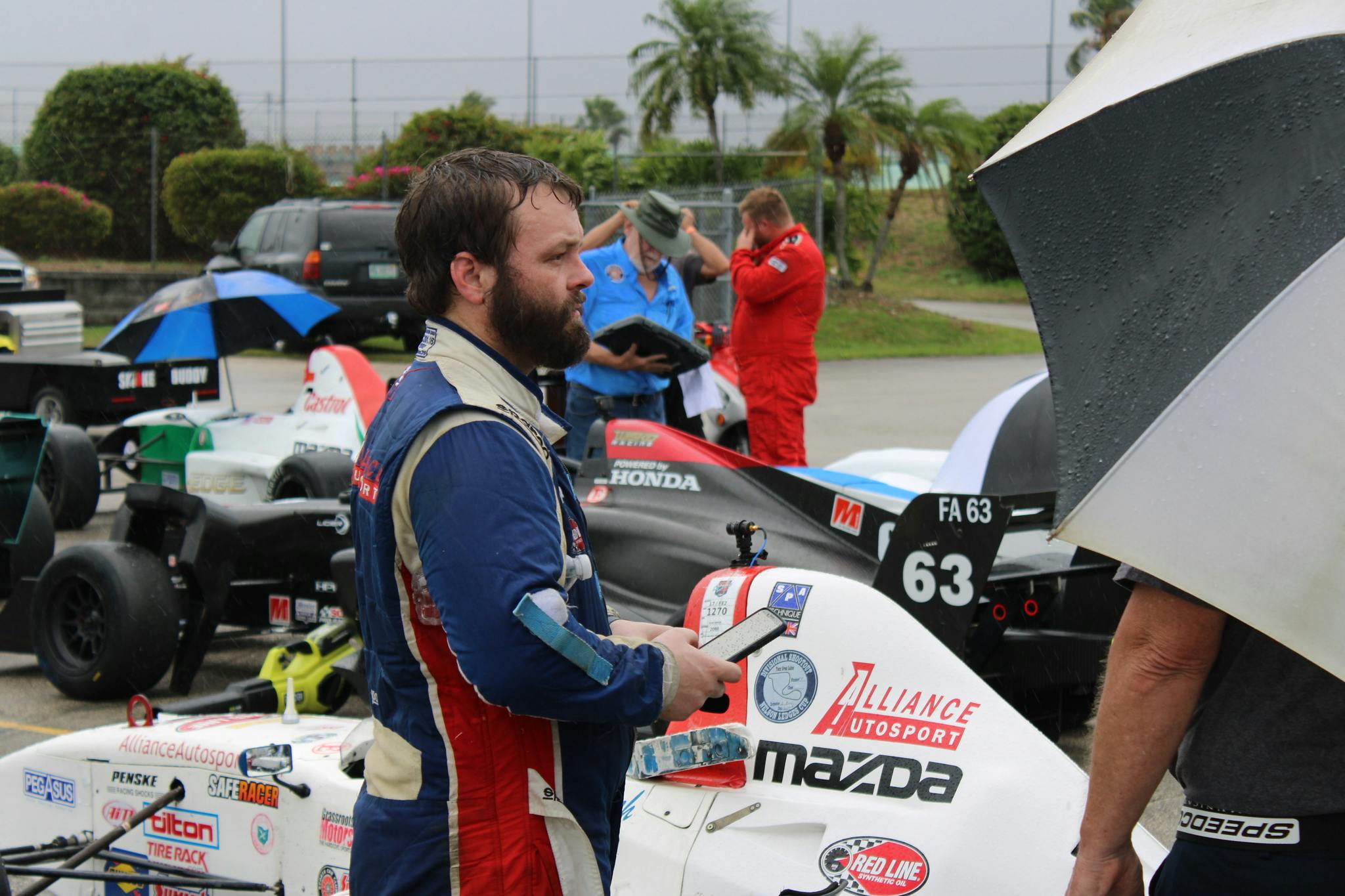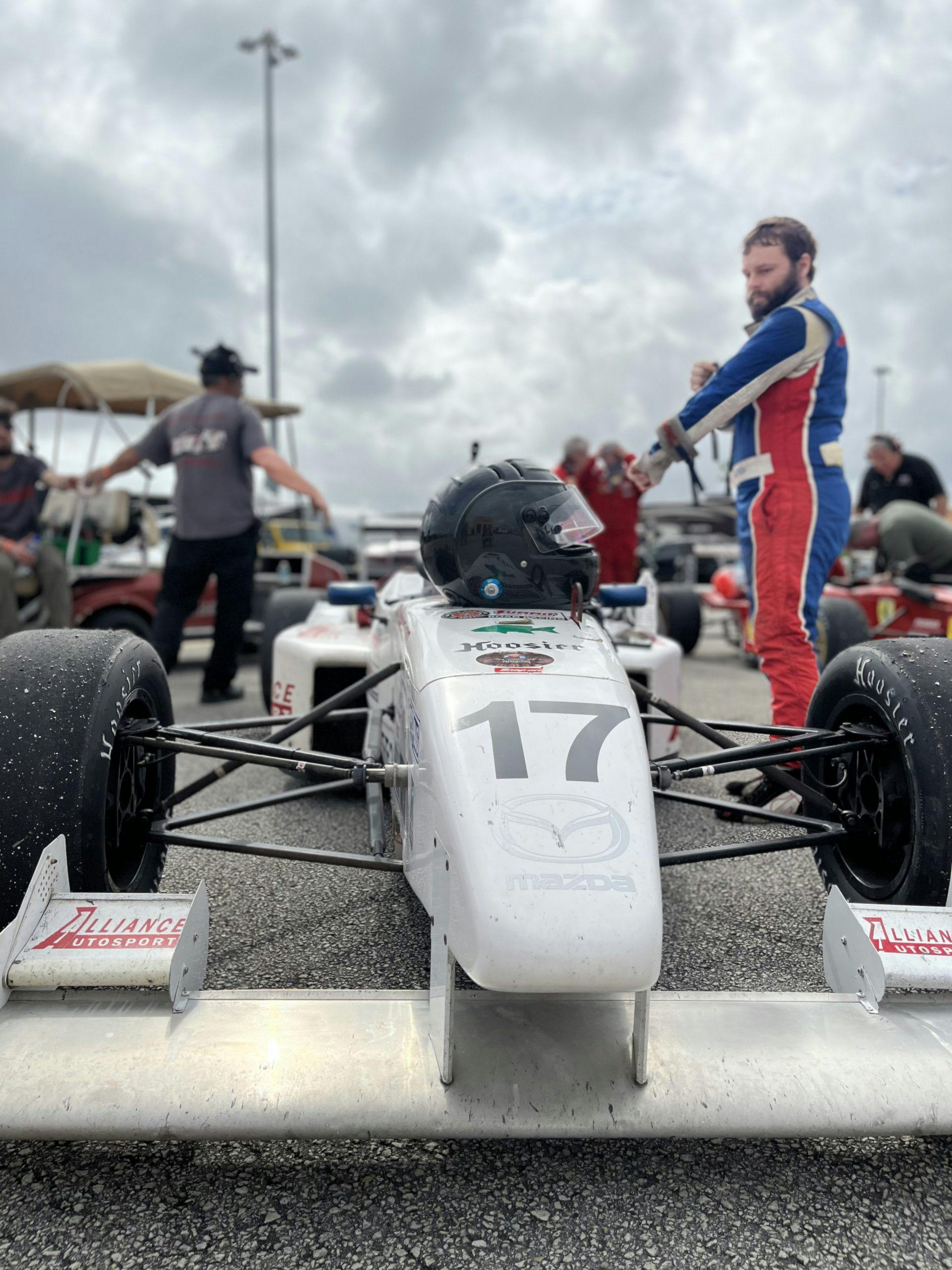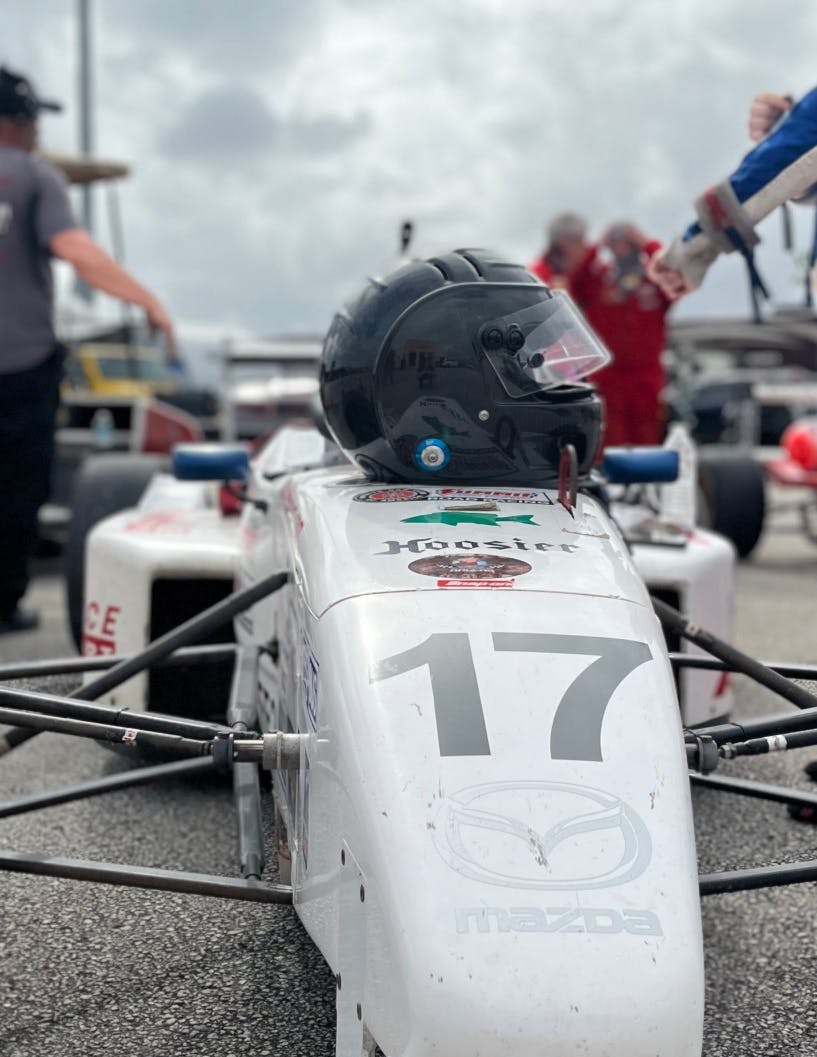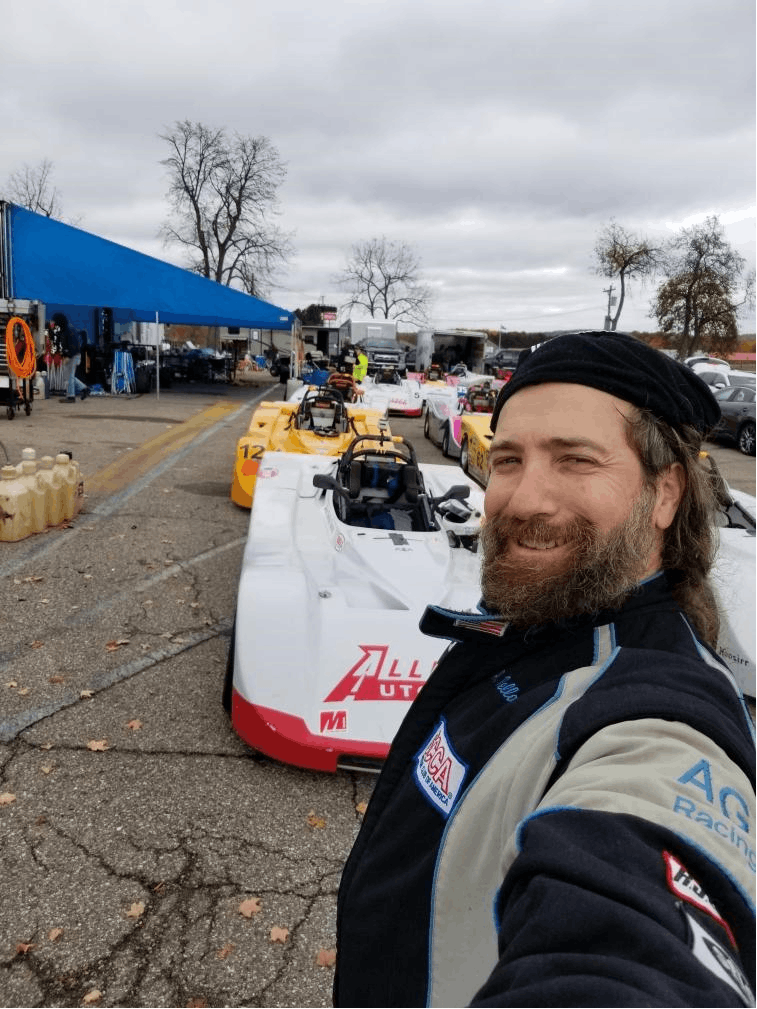Scott Rettich: A life well lived
Many youngsters dream of becoming a professional racecar driver. A handful make it. But only those with genuine goodness give up their dreams and focus on making other drivers’ dreams come true.
I first met Scott Rettich in 2015 at Michigan International Speedway. It was my first nationally-ranked SCCA race and my first time racing on a “roval” (an oval track with an internal road course incorporated). My inexperience had me violently transitioning from the road course to the oval section at such an obtuse angle that I cracked the downpipe on my Spec Miata.
As I searched for a fix and burned time on the phone with Mazda dealers, a friendly crew member recommended I ask Alliance Autosport if I could borrow their welder, and he’d fix the downpipe for me. In a bustling paddock, with half a dozen purpose-built race cars being safety-checked, my destiny landed in the hands of Alliance’s youngest staffer. He was a twenty-something man with a brisk and purposeful air. “Can I borrow the welder?” I asked. Not a word of reply, just a simple follow-me nod.
Into a massive semi-trailer we went, neatly packed with enough parts and tools to rebuild a fleet of race cars. He trustingly handed me the welder, asked that I return it to one of his teammates when I was done, and then about-faced to return to his team. The interaction was neither cold nor impersonal, simply direct. My problem was solved, and Scott expected no compensation or pat on the back in return.
That was Scott Rettich. He died unexpectedly earlier this year, still a young man.

If ever you’ve been fortunate enough to walk through a Formula 1 or IndyCar pit, you know the level of intensity and camaraderie that defines Alliance Autosport. Though the team supports amateur racers, the culture and leadership of the team is strict and highly professional. As with the pro teams, the goal is to keep cars on track, even if it is the competition’s car.
At the time, I had no idea the kind of competitor I had just bluntly asked for a welder. (Nor did I realize he was Alliance’s owner, either.) Scott was a well-decorated driver: seven-time national champion, hundreds of starts and dozens of wins, team owner and multi-time SCCA Super Sweep winner. Winning the Super Sweep Award is the most difficult accomplishment a driver can achieve in the SCCA. To win the award, a driver must win a U.S. Majors Tour Conference Championship, a Hoosier Racing Tire SCCA Super Tour Nationwide Points Championship, and a National Championship Runoffs race—all in a single class. Scott did it six times, more than any other SCCA racer.
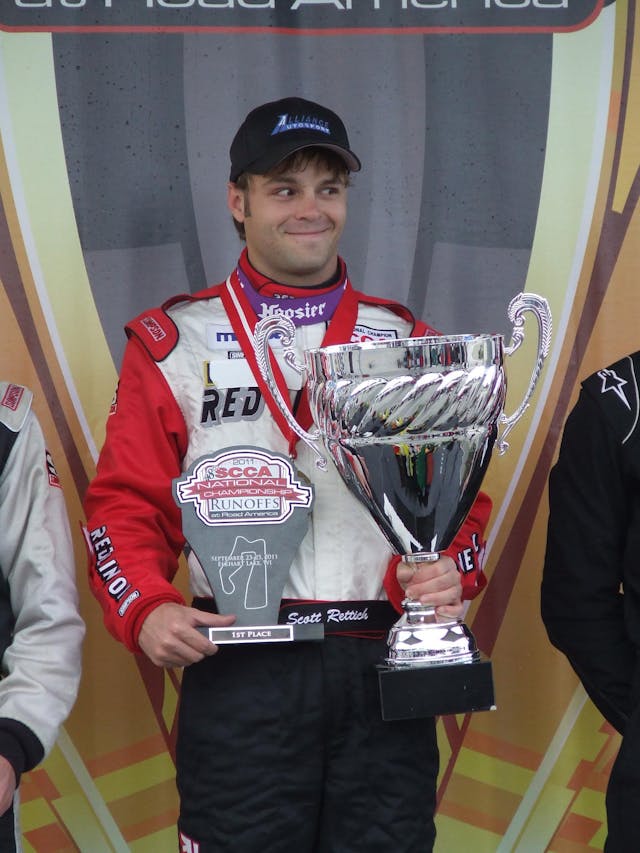
Scott cut his teeth racing in the World Karting Association. He climbed the ranks quickly, honing his driving skills and race craft. He even made friends along the way, despite being a dominant force. In racing, even if you are the nicest person, there is always some jealousy toward winners.
His parents would not bless his transition into cars unless he pledged to complete college, so he made sure to graduate at the top of his class and not miss any exams or classes. This meant sacrificing an occasional championship that may have been within reach.
Moving into open-wheel and spec classes (equally-prepped vehicles to minimize costs and focus on driver skill) was a logical transition for a well-disciplined, quick-adapting driver like Scott. Formula Mazda and Spec Racer Ford classes, specifically. Showing promise, he wasted no time and applied his skills and ambition by moving up one more step and running a variety of Pro series: Indy Pro 2000, Grand Am Road Racing and even the Rolex 24 at Daytona.
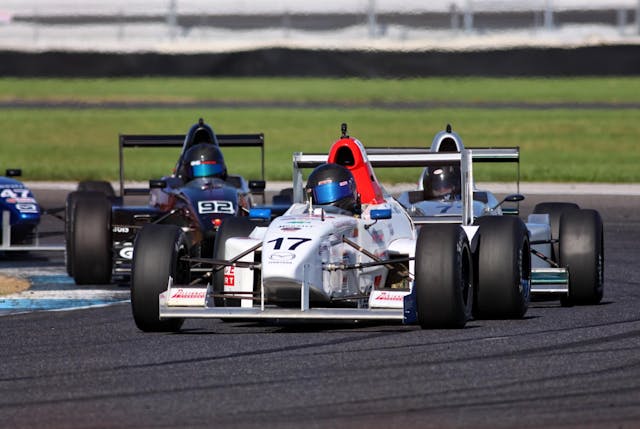
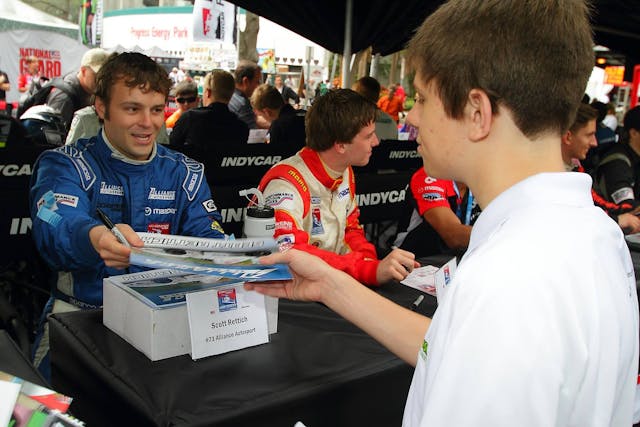
It did not take long, however, for Scott to figure out that a pro series wasn’t the best fit. For starters, pro racing typically requires funding reserved for the those with six or seven figures of disposable income. Sure, talent is a major factor, but there are hundreds of amateur-ranked drivers that could fill a pro-series seat and never will because of dollars and cents. Certain human and social elements, too, fall by the wayside in most pro series. Much like a world-famous popstar who struggles to develop true connections with ordinary individuals, Scott was dissatisfied with that lifestyle.
Instead, and with the help of his parents, he chose to apply his business skills to start an arrive-and-drive race car rental and coaching business. Alliance Autosport was born.
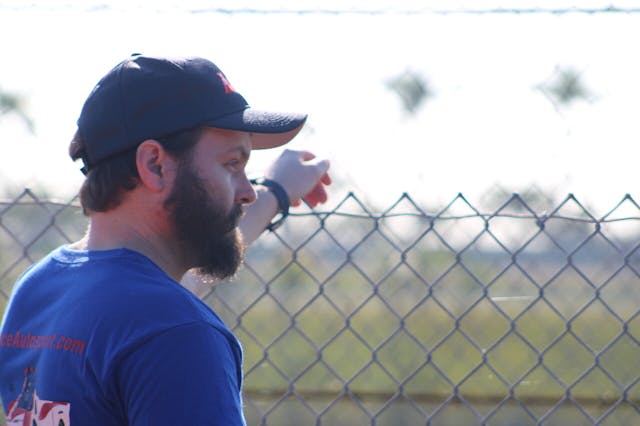
The team would fill three major needs in Scott’s life: the potential to continue racing in a competitive environment, genuine social connections, and the ability to coach and develop drivers from all walks of life. It was a misconception that Scott was an overly serious, minimally social creature—a reputation earned because he was all business when the track was hot. Once the track was cold and the cars were prepped for the next day’s races, Scott would engage in conversation and entertainment with his colleagues for hours. In the paddock, Alliance’s signature big blue tent was a beacon of friendliness.
One rainy October evening, I was returning from the local steakhouse near Mid-Ohio Sports Car Course. The blue tent was aglow in an otherwise dark paddock, laughter and animated conversation emanating from it. All eyes inside were glued to Scott, dressed in a ketchup-bottle costume. In the company of his drivers and crew, he was the ringleader of live circus performance, two hands flailing in descriptive motion. Without missing a beat, he greeted us with a warm smile and welcoming gesture.
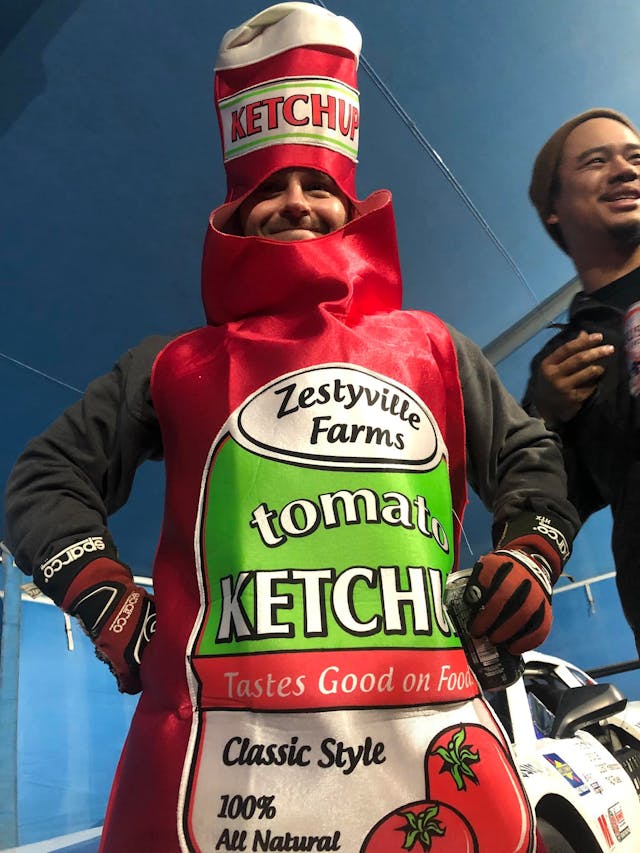
The family environment Scott fostered is one of the ingredients to the team’s success, defined by the number of vehicles supported on any given race weekend. At Mid-Ohio, Alliance’s home track, I’ve seen the team support 18 race cars without missing a session or a nut-and-bolt check. That’s in part because of the attention they place on their drivers. Mechanically reliable and properly set-up vehicles are one thing, but so is driver development and the general enjoyment of being at the track.
Scott was a master coach, regardless of driver age, gender, background, or skill level. The customized lessons he provided for each driver between sessions were key. They went beyond driving skills, and for many he was a life coach; he understood first-hand the mental and emotional state it takes to be safe and swift on track. Reviews with Scott were not overly complicated, just digestible morsels.
Taking care of the drivers was a top priority. Taking care of his crew was the top priority. Yes, he had a “no dinner until vehicles are ready for the next day” policy, but if the team was taxed or shorthanded he would manage accordingly. In 2019, at the June Sprints held at Road America (SCCA’s second largest nationally-ranked race), Scott withdrew from the race as a driver to better take care of his team. He was often the crew cook, and more than once I found him rinsing off kitchen utensils with rubber gloves at some lonely spigot. Anything for Alliance—that was Scott.
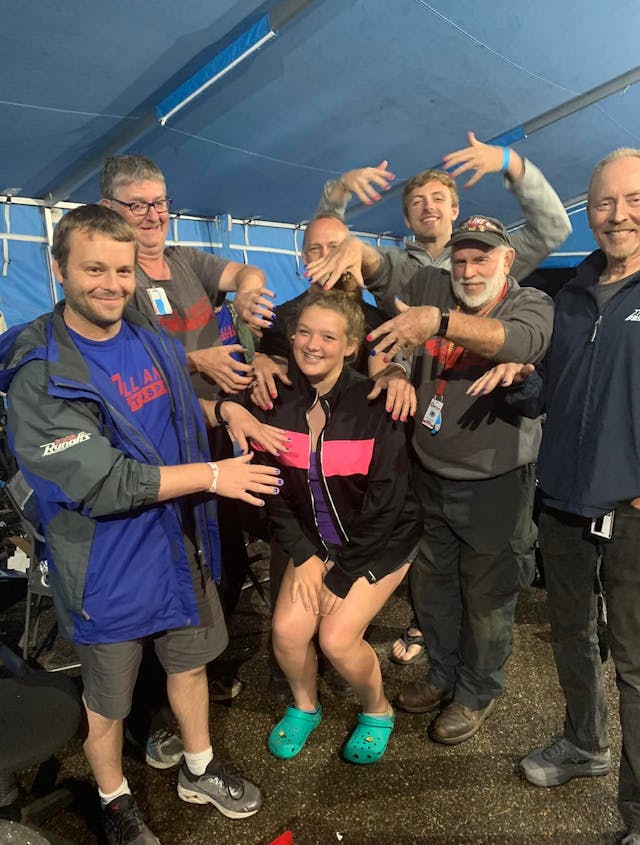
His legacy lives on in the record books, in the memories he made with the track family, and the hearts of those who knew him. I personally have never been so grateful to have cracked a downpipe. The level of patience, sympathy, and charity Scott had for so many on and off the track was unmatched. Godspeed, my friend.
Alliance Autosport continues to operate as a family and team offering national-level competitive vehicles. The same standards of service and competition Scott established are observed across the country during two dozen race weekends per year.

